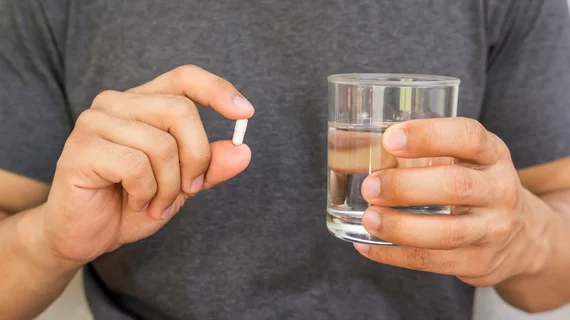Taking BP meds at bedtime slashes CVD risk
The largest study of its kind has found that taking blood pressure medication at bedtime—as opposed to first thing in the morning—lowers heart patients’ risk of death and CV-related illness in the long run.
The Hygia Chronotherapy Trial, led by Ramon C. Hermida, director of the bioengineering and chronobiology labs at the University of Vigo in Spain, enrolled 19,084 hypertensive patients and randomized them to taking their pills either at bedtime or upon waking. The study ran for more than six years before findings were published in the European Heart Journal Oct. 23.
“Current guidelines on the treatment of hypertension do not mention or recommend any preferred treatment time,” Hermida said in a statement. “Morning ingestion has been the most common recommendation by physicians based on the misleading goal of reducing morning blood pressure levels.
“However, the Hygia Project has reported previously that average systolic blood pressure when a person is asleep is the most significant and independent indiciation of cardiovascular disease risk, regardless of blood pressure measurements taken while awake or when visiting a doctor. Furthermore, there are no studies showing that treating hypertension in the morning improves the reduction in the risk of CVD.”
The Hygia Project is a local effort comprised of 40 primary care centers within the Galician Social Security Health Service in Northern Spain. Nearly 300 physicians participate, all of them trained in ambulatory BP monitoring.
The Hygia Chronotherapy Trial leveraged that workforce. Doctors took patients’ blood pressure at the study’s baseline and at subsequent clinical visits, and patients underwent ambulatory blood pressure monitoring for at least 48 consecutive hours once a year. During an average of 6.3 years of follow-up, 1,752 patients in the original cohort died or experienced heart failure, blood vessel or heart complications, MI, stroke or coronary revascularization.
After adjusting for patient characteristics like age, sex, diabetes, kidney disease, cholesterol and smoking status, Hermida and co-authors found that people who took their BP meds at nighttime saw a 45% reduced risk of dying or suffering an MI, stroke or heart failure than their peers who took their pills in the morning. Broken down, patients who took their medication at night saw:
- A 66% reduced risk of blood vessel problems
- A 44% reduced risk of heart attack
- A 40% reduced risk of coronary revascularization
- A 42% reduced risk of heart failure
- A 49% reduced risk of stroke
“The results of this study show that patients who routinely take their antihypertensive medication at bedtime, as opposed to when they wake up, have better-controlled blood pressure and, most importantly, a significantly decreased risk of death or illness from heart and blood vessel problems,” Hermida said.
Data from ambulatory BP monitoring revealed that patients who took their medication at night saw significantly lower average BP values both at night and during the day, with blood pressure dipping further at night. A progressive reduction in nighttime systolic BP during follow-up was the most significant predictor of reduced CVD risk.
“Average blood pressure levels while asleep and nighttime blood pressure dipping, but not daytime blood pressure or blood pressure measured in the clinic, are jointly the most significant blood pressure-derived markers of CV risk,” Hermida said. “Accordingly, round-the-clock ambulatory BP monitoring should be the recommended way to diagnose true arterial hypertension and to assess the risk of cardiovascular disease.”
Hygia Project researchers are now focusing their efforts on the THADEUS (Treatment of Hypertension During Sleep) trial, which will aim to identify optimal resting BP levels for reduced CV risk.

